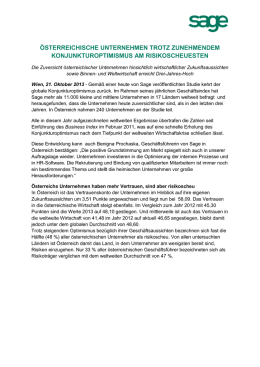
Vesper (Eds.), The encyclopedia of entrepreneurship (pp. Journal of Experimental Social Psychology, 37(5), 373–385.īrockhaus, R. The return to independent invention: Evidence of risk seeking, extreme optimism or skewness-loving? The Economic Journal, 113(484), 226–239.īlanchflower, D. And a vision appeared unto them of a great profit: Evidence of self-deception among self-employed. Methodology/approachĬritical review of the existing literature on unrealistic optimism and its implications for economic and managerial decision making.Īrabsheibani, G., de Meza, D., Maloney, J., & Pearson, B. Originality/valueĪ careful analysis of the psychology of over-optimism from an economics and managerial perspective is original and extremely valuable in a world where uncertainty dominates. Since the policy and welfare implications of such a (neglected) widespread phenomenon are vast, we challenge the current public policy trend of extending lending to business start-ups, on the grounds that it may create a real road to ruin. We show that most people are prone to groundless optimism when faced with economic and managerial decisions and yet economists, managers and policy makers still ignore it or fail to understand its characteristics. We also analyze current trends in terms of entrepreneurship by policy makers. The purpose of this study is to take a critical approach of the main research done in the area and to analyze the important impact that it has in many economic and managerial contexts.
#Weinstein notion of unrealistic optimism skin
Findings from the study provide a better understanding of the factors that contribute to young women’s risk perceptions regarding skin cancer.Unrealistic optimism is all around us, and it is a well-documented psychological phenomenon.

However, a significant main effect for Peer Information indicated that participants who received peer information estimated their absolute risk and comparative risk as significantly lower than those who did not view peer information. those who received the “unrealistic optimism enhancing” conditions, and neither group differed from those who received the control conditions.


Results showed no significant differences in risk estimates among participants who received the “unrealistic optimism diminishing” conditions vs. The study entailed an Image (high risk, low risk, no image) x Peer Information (given, not given) x Personal Factors List (risk, protective, none) 3 x 2 x 3 factorial design. Participants were 363 Caucasian women between the ages of 18 and 24 who completed an online study via MTurk. Within the current study, factors previously shown to influence unrealistically optimistic health perceptions (i.e., images of risky/protective health behavior, peer risk estimates, personal risk/protective factors) were directly manipulated to examine their effects on young women’s perceived risk of developing skin cancer. This tendency to be “unrealistically optimistic” can contribute to greater engagement in risky health behaviors, and in turn, greater actual risk of the negative health outcome. Past research has shown that individuals have a strong tendency to believe that they are less likely than others to experience negative health outcomes (Weinstein, 1980).


 0 kommentar(er)
0 kommentar(er)
